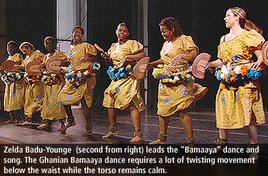This semester has been particularly eye-opening for me, in terms of the shift from infectious diseases to chronic diseases. I have had to think a whole lot about why such a shift will occur and at the end of the day I can safely conclude that worldwide, people have been failed; they have not been well educated about their own bodies and the consequences of doing too much. I think it can be said that we all understand what happens when we don't eat enough, or drink enough liquids or even take the appropriate medications. But somehow we have failed to understand that the opposite, which is overeating has equally devasting consequences. {While thinking of that, I just realized that diabetes is not always caused by overeating, but rather overeating particular foods that contribute to the disease.} Here's a link to a map showing diabetes prevalence in the world. http://www.who.int/diabetes/actionnow/en/mapdiabprev.pdf (I'm trying to find a good map showing poverty levels, but I can't quite find one). In any case, diabetes is highly associated with obesity which generally suggests excess of fats and possibly excessive food in general. I've been told that the difference between hungry children around the world is that some are malnourished (they have food, but not a good balance of essential nutrients) while others are simply starved (as in they don't even get anything to eat in the first place).
Diabetes in particular hits close to home, because my mother is diabetic and has been for a few years. She doesn't take any medications as her diet is quite sufficient in controlling her diabetes and she also supplements her diet with roots and herbs whenever she feels that her blood sugar is getting too high. She told me of her fear of diabetes because her grandfather's foot was amputed because of diabetes when she was growing up. My maternal grandmother is a bit on the overweight side and I'm not sure if she's been diagnosed with diabetes, but that will not surprise me at all. My paternal grandmother is also diabetic which means that all those sweets I grew up eating were probably not a good idea. You see, in my society, children are supposed to eat as many sweets as possible. (When I was growing up, my mother tried to keep me on a restricted sugar diet, but my grandmother said no grandbaby of hers will not have all the candy she wants and thus triggered this sweet tooth that now has required an extraction and root canal with possibilities of more root canals and extractions in the future). It is a common thought that women fall for men with pot-bellies in Ghana because it means that they can take care of the women. The bigger you are, the more status u can potentially have because it is assumed that you can afford to feed yourself and a few others as well. At the same time, we have many opportunites for physical activities and those children that were overweight were terribly teased and called "gbontos". From my understanding children at home are still feasting on the sweets but the physical activities are not as rigorous as they used to be.
I guess this entry is a bit on the ramble side, but at the end of the day, I am highly concerned about the pandemic of diabetes in the world. While some of us are pre-disposed to such a disease, we all have to think about what goes into our mouths. As professionals we will be faced with opportunities to grab some junk food on our way to a meeting; but at the same time, we have to remember that statistics do not create themselves and we have to do all we can in our personal lives to ensure that we are not included in the numbers in the pandemic.
Wednesday, January 31, 2007
Friday, January 26, 2007
A leader comes home
After ten years of hard work and a lot of aspirin and peptobismol (speculation, but you've got to imagine that stress level!) Kofi Annan has completed both terms in office as Secretary-General and has now returned home to Ghana. He was the second African serve this position. (Boutros Boutrous-Ghali from Egypt served 1 term before his second term was vetoed by the U.S.[Important to note that Annan was the first Black African to serve as Secretary-General, a "victory" for Sub-Saharan Africa]). Of course, as a Ghanaian, I beam with pride when people acknowledge the great things that this man worked so hard to achieve during his term. At the same time, I have read lots of comments in which he is refered to as an "Uncle Tom". As a Secretary-General, he was under scrutiny because he was supposed to lead the world towards betterment. As an African he was closely watched because the world had to make sure that the Dark continent could produce leaders, afterall. Initially, he was seen in a very favorable light, winning the Nobel Peace Prize in 2001, but after the U.S. declared war in Iraq, and things got heated in Darfur, Sudan, many critics say that Annan did not do enough as a Secretary-General. The "Food-For-Oil" scandal involving his son, definitely did not help his image. It was interesting to hear during his last speech as Secretary-General, his open criticism of the Bush administration's use or rather misuse of democracy in Iraq. But in all, I believe that the soft-spoken gentleman from Ghana is highly respected; his position as a leader has affirmed that the Black Man does have a place in world affairs and cannot be reduced to a disease statistic.
Check out this sites talking about his return home. Different interests and motivations for the authors are readily displayed in these articles:
From CNN:
From ghanaweb:
Thursday, January 25, 2007
Changing Trends in Communicable Diseases
Dr. Shahi mentioned ORS in class today and it brought a whole bunch of memories to me. While I do not reach for my salt and sugar when trying to find a remedy for diarrhoea, I remember that we all had to learn about ORS especially during outbreaks of cholera. This solution has saved many many lives and proven to be simple enough for almost everyone to be able to make. A country like Ghana, where cholera is still a major risk for members of her population has included simple remedies like ORS into their primary school curricula.
From the video for class today, we learned that every 14s, a child is orphaned as a result of AIDS. This is a very devastating statistic and the truth is that most of us cannot grasp exactly what that means. I know I certainly can't really comprehend the problem. I mean, in the time it's taking me to complete this entry, the number of people that would have died from AIDS is alarming. To top it off, the percentage of those who would be leaving children behind creates major distress in my mind.
As a part of rebuilding, Africa will, at some point, have to figure out what do with all these children that have no parents. The wars and other major problems have already caused enough trauma to a lot of children. AIDS has only exacerbated the situation. It would be very pertinent for nations to set aside funds and resources for her future. It would be interesting to see how Africa shapes up in terms of her youth, because they are so many distractions (child soldiers, child trafficking etc) that can cause so much more turmoil on the continent.
Globilization, Development & Health
Globilization has become a topic for all avid debaters, politicians, students and healthcare workers. On one hand, it is seen as a one size fits all solution for the world's problems. On the other hand, it is the perfect solution to robbing hardworkers of their jobs, simply because companies refuse to pay them what they're due. In the Johan Norbeg video the commentator mentioned the idea of "Americanization", which he said critcs say is what's happening instead of globilization. He doesn't outright deny it, because the truth is that globilization has indeed taken a form of americanization. This has manifested not only in businesses, but in culture. Many protective features of our cultures such as a healthy eating has been replaced with the need for status by devouring american type foods. I remember talking to my cousin and they were sitting down to dinner. When I asked her what they were eating, she said potatoes (as in french fries). Mind you, Ghana does not grow "Irish potatoes" because our climate does not support its growth, so only those with extra money and special reasons eat potatoes. Of course they weren't eating potatoes, but she felt the need to tell me this, so that her status seems better. Western foods are favored over local healthy foods because they are seen as better and they show that the person is well off. It is because of such perceptions that in the quest for globilisation, a lot of communities can potentially lose a lot of their cultures and the very protective factors that are natually in place.
Tuesday, January 23, 2007
The Big Picture
The world as we know it today has generated some of the greated technologies known to man. These days we can travel just about anywhere in the the universe to discover what's going on there. Many are known to spend their weeks traveling around the world on "business". Others have access to traveling to new and exciting places in the name of "pleasure" or vacation. But as the world finds more ways to connect itself, we discover that the world is not exactly a beauty for everyone. Only a certain population of the world can afford to make a trip to the airport, let alone get on a plane. In some parts of the world, wars have caused good health to be on the bottom of the priority list, as basic survival supersedes anything else. In looking at the big picture of the world, I understand that while a small population has access to the biggest chunk of resources, most of that small population does not exist anywhere near Africa. In all statistics and charts and diagrams, it is obvious that the sub-saharan Africa as it's called is quite synonymous to words like death sentence, hell, 'get out if you can'. etc. Now, since it's home to me, I have to take a step back and check my emotions. The video with Hans Roslin clearly showed how most of the world has developed forward, but somehow the dark continent remains stunted in growth with the highest number of anything bad. The portrayal of the dark continent has some accuracies which should be corrected through interventions and aid, but with such change should come a revolution of the perception of what Sub-Sahara Africa is. I hope to use this forum to enlighten my colleagues, not only about my thoughts about the subject discussed in class, but also to bring about my home.
Subscribe to:
Comments (Atom)







